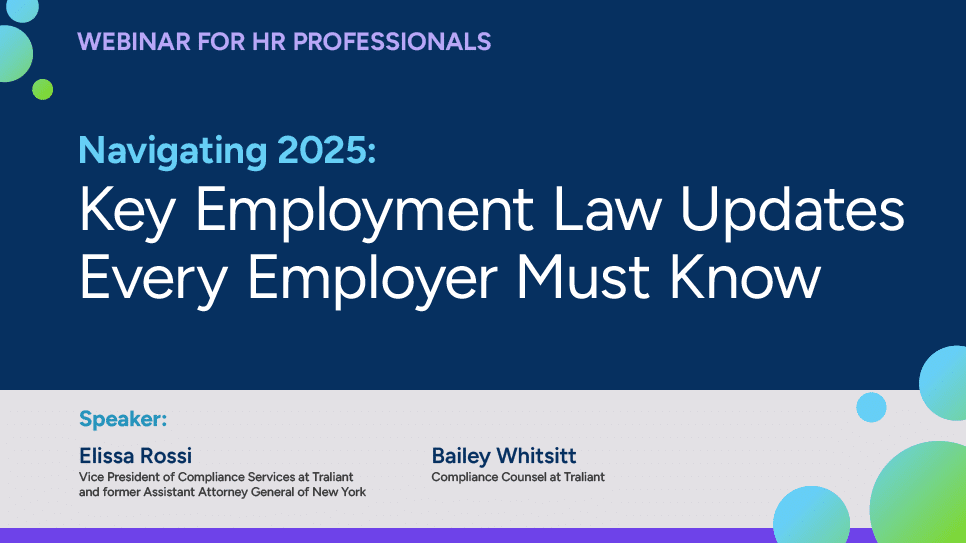

Delaware Sexual Harassment Training Requirements
Protect your employees and your organization: Comply with DE regulations.
Delaware Sexual Harassment Training Now Required by Law
Employers must provide sexual harassment training to all employees every two years under the Delaware Discrimination in Employment Act (DDEA), as amended in 2018 by HB 360.
The following FAQs are intended to help organizations comply with the Delaware sexual harassment training requirements.
FAQs
Which employers must provide sexual harassment training?
The DDEA requires employers with 50 or more employees in Delaware to provide interactive sexual harassment training for all employees.
In determining whether an employee meets the 50-employee threshold, employers do not need to count applicants, independent contractors, or those who are employed fewer than six continuous months.
Who must receive sexual harassment training?
Employers must provide the training to all employees, including supervisors and non-supervisors.
Training for applicants, independent contractors, or those who are employed less than six months continuously is not required.
When must new employees and new supervisors be trained?
New employees must receive training within one year of their start date. New employees do not have to be trained until they have been employed continuously for six months.
New supervisors must receive training within one year of becoming a supervisor.
Must employers retrain employees?
Yes. Employers must retrain all supervisory and nonsupervisory employees every two years.
What must be included in the content of the training?
All employees must receive interactive sexual harassment training on the following topics:
-
The illegality of sexual harassment
-
The definition of sexual harassment, using examples
-
The legal remedies and complaint process available to the employee
-
Directions on how to contact the Department of Labor
-
The legal prohibition against retaliation
Supervisors must receive the training content outlined above, plus training that addresses the specific responsibilities of a supervisor to prevent and correct sexual harassment, and the legal prohibition against engaging in retaliation.
Clear Law Institute’s interactive online training course, Positive Workplace: Preventing Harassment at Work, includes all of the required content from the Delaware sexual harassment training law.
Did the 2018 amendments to the DDEA include any other harassment-prevention provisions?
Yes, as summarized below:
Required Written Notice:
Employers with at least four employees working in Delaware must distribute a Delaware Sexual Harassment Notice to all new hires, at the time of initial hire. The employer may provide the notice physically or electronically.
The Delaware Department of Labor has published a Delaware Sexual Harassment Notice, contains provides information on the Delaware law prohibition against sexual harassment and retaliation.
Liability Standard:
Under the Delaware Discrimination in Employment Act, an employer can be held liable for sexual harassment of an employee if:
-
the employer knew, or should have known, of sexual harassment committed by a non-supervisory employee but failed to take appropriate corrective measures;
-
a supervisor committed harassment that resulted in a negative employment action of an employee; or
-
a negative employment action is taken against an employee in retaliation for filing a discrimination charge, participating in an investigation of sexual harassment, or testifying or lawsuit about the sexual harassment of an employee.
Negative employment action means an action taken by a supervisor that negatively impacts an employee's employment status.
Delaware employers can avoid liability for acts of sexual harassment by a non-supervisor if they can prove that:
-
the employer exercised reasonable care to prevent and correct any harassment promptly, and
-
the employee unreasonably failed to take advantage of any preventative or corrective opportunities provided by the employer.

